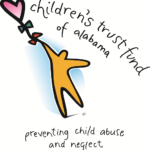Understanding the Genetics of Addiction and What Families With a History of Addiction Can Do
Addiction is a complex and often misunderstood issue that affects millions of individuals and their families worldwide. Addiction not only takes a toll on the person who is addicted, but also on their loved ones, as their addiction begins affecting the way they think, feel, and behave in social situations.
When one family member struggles with addiction, the others may begin to wonder whether or not addiction is hereditary. Although there are many factors that contribute to substance abuse and addiction, genes and family history are risk factors, so there may be a hereditary component.
Is Addiction Genetic?
While addiction is influenced by several factors, including environmental and psychological factors, there is evidence to suggest a genetic component. Research has shown that genes can contribute to an individual’s susceptibility to addiction. In fact, extensive family studies have suggested that as much as half a person’s risk of becoming addicted lies in their genetic makeup.[1] However, it is important to note that having a genetic predisposition does not guarantee that someone will develop an addiction. It merely increases the risk.
Understanding Genetic Predisposition for Addiction
Researchers are still trying to understand the exact genetics behind addiction, however, they know that multiple genes are believed to contribute to a person’s addiction susceptibility.[2] Studies have also shown that people with a genetic predisposition are more likely to suffer from addiction if they also have environmental risk factors, such as living in a low-income neighborhood or growing up in an abusive or neglectful home.[3]
Researchers also believe that dopamine and the reward system play a key role. Genetic variations in genes related to dopamine regulation can impact an individual’s response to rewarding stimuli.[4] To explain, some people may be more sensitive to the effects of drugs, causing their brain to associate drugs or alcohol with a reward faster than this would occur in other individuals. These genetic differences may affect how easily someone becomes addicted and how intensely they experience cravings for drugs and alcohol.
The bottom line is that if your parents struggled with addiction, you may be more likely to struggle with addiction yourself–even if your biological parents didn’t raise you. However, just because you have a biological parent who struggled with addiction doesn’t mean you will, too. It simply increases your risk, and means you should be extremely cautious when it comes to alcohol or drug use.
What Families With a History of Addiction Can Do
If addiction runs in your family, there are ways you can break the cycle.
1. Recognize the Risk
If you come from a family with a history of addiction, it is essential to recognize that you may be at a higher risk of developing addiction yourself. However, it’s important to remember that genetics is only one piece of the puzzle. Environmental factors and personal choices also play significant roles–and, fortunately, you are in control of them!
2. Communication and Education
Talk to your family members about the history of addiction in your family. Open and honest communication can foster a supportive environment where everyone feels comfortable discussing their concerns and seeking help when needed. Educating yourself about addiction and the way addiction has affected your family specifically can help you better understand the risks and take proactive steps to mitigate them.
3. Encourage Healthy Lifestyle Choices
Making healthy lifestyle choices can reduce the risk of addiction. For example, engaging in regular physical activity, maintaining a balanced diet, and getting enough sleep can positively influence your overall well-being and contribute to better mental health.[5] Avoiding or minimizing exposure to environments that promote drug or alcohol abuse can also be beneficial.
4. Keep a Positive Support Network
Building a strong support network is vital for individuals and families dealing with addiction. Surrounding yourself with understanding and compassionate individuals who can provide emotional support can make a significant difference in the recovery journey. Avoid spending time with people who abuse drugs or alcohol because these aren’t the influences you need.
5. Seek Help When You Need It
The sooner you get help, the better. As soon as you or a loved one begin struggling with substance abuse or mental health issues, take proactive steps in treating the issue.
If you or a loved one are struggling with addiction, seeking professional help is crucial. Addiction is a complex disease that often requires specialized treatment. Reach out to healthcare professionals, addiction counselors, or support groups to explore available resources and develop an appropriate treatment plan.
References:
- https://nida.nih.gov/publications/drugfacts/genetics-epigenetics-addiction
- https://learn.genetics.utah.edu/content/addiction/genes
- https://www.ncbi.nlm.nih.gov/pmc/articles/PMC7747788/
- https://pubmed.ncbi.nlm.nih.gov/22350797/
- https://www.ncbi.nlm.nih.gov/pmc/articles/PMC4304169/








